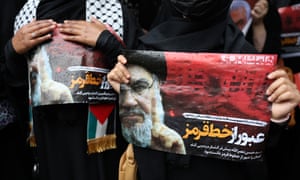|
China cracks down on Communist party officials for reading banned books | China When Lam Wing-kee ran his bookshop in Hong Kong, filled with controversial and political titles banned in mainland China, many of his customers were Chinese Communist party officials. Back then, in the early years of Chinese leader Xi Jinping’s reign, and before Lam was detained by Chinese authorities for his work, the officials would load up boxes of books on CCP politics, Chinese economics, and scandal, often taking them back over the border. “CCP officials would look for books about what’s going on in China, about changes in the top rank officials, who gets the most power, changes in the power and the struggle between them, etcetera,” Lam tells the Guardian, suggesting officials were often buying the books to learn about what was going on inside their own party. “Some of my customers were high-ranking members of the CCP,” he said. But today, such purchases are coming back to bite their buyers. Several recent corruption cases against CCP officials have included accusations of procuring or reading banned materials. The officials have so far received internal disciplinary actions, including being expelled from the party, but observers are watching to see if criminal charges follow. In September a former municipal level official in Heilongjiang, Li Bin, accused of corruption, was also found to have “privately read an illegal publication containing contents that undermined the unity and solidarity of the Party”, according to state media. He was expelled from the Party and his case given to prosecutors. That same month, Cheng Zhiyi, former party secretary of Chongqing’s Jiangjin district, was also expelled. Among the accusations were “losing ideals and beliefs” after he privately read books and magazines with “serious political problems’ while “outside the country”. Henan official Yang Lei also was accused of “losing ideals and beliefs and abandoning the original mission” when he violated “political discipline and national laws”, including bringing prohibited books into the country, according to CCTV in August. A recent report by the South China Morning Post said at least a dozen cases this year had prominently included accusations of reading or procuring banned materials, up from seven last year. They emphasise illicit reading ahead of other crimes like bribery. Wen-ti Sung, a nonresident fellow with the Atlantic Council’s Global China Hub, attributes the rush of punishments to new performance targets for party discipline bureaucrats tasked with “punishing those who are deemed disparaging of the party’s image, principles, or policies, as well as those who are in possession of material that could have such effect.” “The Chinese Communist party champions itself as always ‘great, glorious, and correct’. This image of infallibility must not be challenged, lest it threatens the governing legitimacy of the party,” he said. None of the corruption cases publicly reveal what reading materials the fallen cadres had accessed. But a list of banned titles published by China Digital Times offers some possibilities. The list includes writings on Chinese politics and history, including the Tiananmen Square massacre and the disastrous Mao-era policies that saw millions die from famine, violence, and political purges. There are books scrutinising the modern CCP’s politics and power, or sharing the views of political enemies and critics like Hong Kong tycoon and activist Jimmy Lai, the exiled Tibetan Dalai Lama, and Bo Xilai, the fallen political foe of Xi Jinping. Hillary Clinton’s memoir is on the list, as is Machiavelli’s The Prince, and Hannah Arendt’s The History of Totalitarianism. Many of the banned books line the shelves of Lam’s new shop in downtown Taipei, which he reopened in 2020 after fleeing to the Taiwanese capital in exile. Xi’s leadership has been particularly noteworthy for its purges of political rivals and crushing of factionalism. Discussion, criticism, even gossip, has become more and more dangerous for those trying to survive politically. As Xi’s grip tightens, it will be interesting to see if the illicit reading cases move beyond Party disciplinary proceedings and start to attract criminal charges, says law Prof Margaret Lewis, of Seton Hall University. “It’s not like in the past people would be like ‘I’ll just take an unauthorised biography of Bo Xilai down the coffee shop’. But it’s a matter of turning up the temperature, not totally changing the climate” says Lewis. “But it goes to show the power of information and books. They care enough to say this is punishable infraction.” Source link Posted: 2024-10-13 00:10:09 |
Israel vs. Iran: Who has the stronger military?
|
|
Olympic gold medallist Zheng, defending champion Gauff win 1st-round matches at U.S. Open
|
|
How to cook fried eggs fast without flipping - clever 45-second method
|
|
Will Hezbollah survive Israel’s onslaught? – podcast | News
|
|
Middle East crisis live: Israel steps up attacks on Hezbollah targets in Lebanon amid rising fears of wider war | Israel
|
|
Novak Djokovic and Rafael Nadal get help as thrilling Six Kings Slam draw confirmed | Tennis | Sport
|
|
Homes for sale with or on islands around the UK – in pictures | Money
|
|
Lando Norris splits with supermodel Margarida Corceiro after 'many girlfriends' comment | F1 | Sport
|
|



